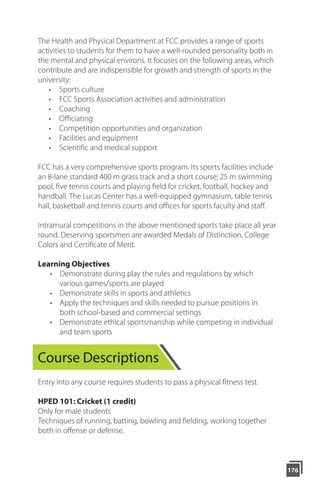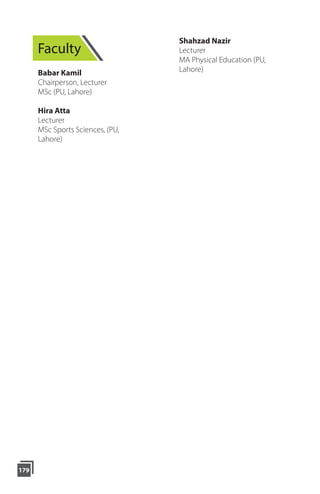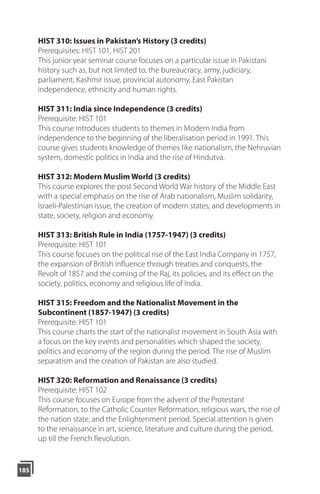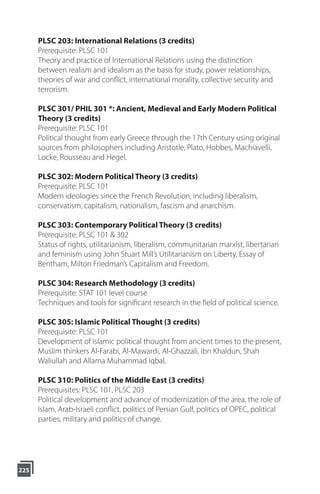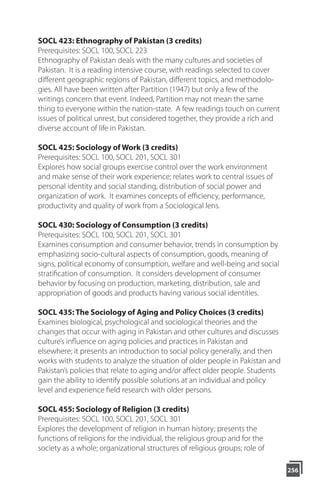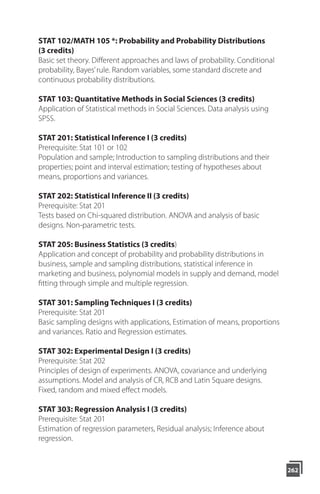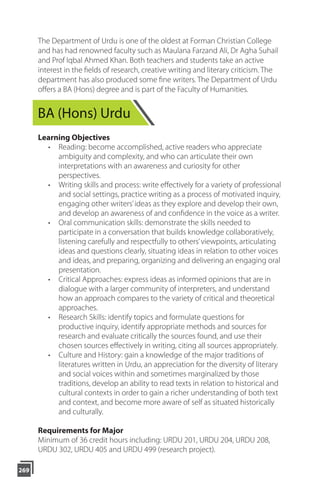This document provides an overview of Forman Christian College (FCC), a private university located in Lahore, Pakistan. It discusses FCC's history, mission, vision, commitments, academic departments, campus facilities, student life programs, and administrative offices. FCC was founded in 1864 and aims to provide a high-quality American-style liberal arts education with a focus on developing ethical leaders. The document outlines FCC's commitments to excellence, individual development, core values like integrity and service, and lifelong learning. It also provides brief descriptions of FCC's academic departments and programs.





















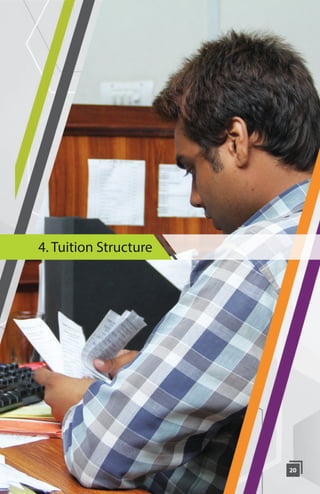
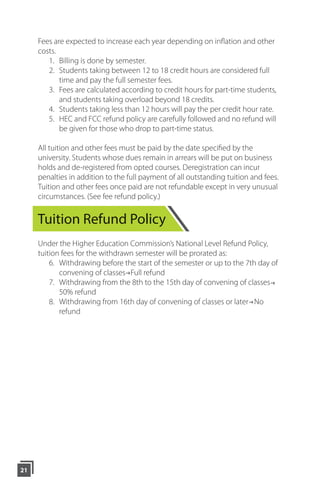



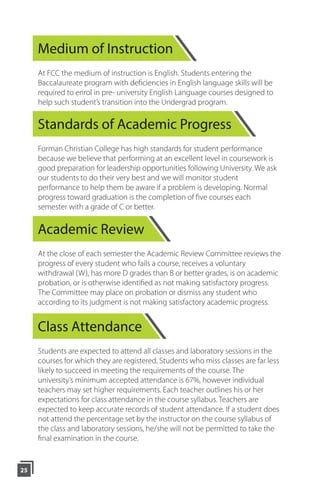















































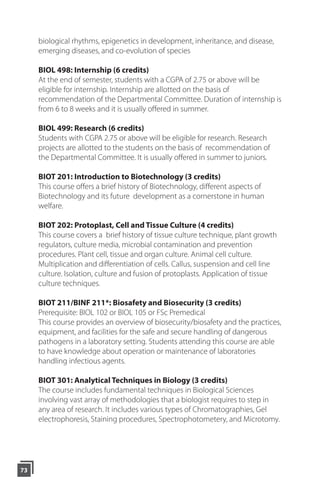













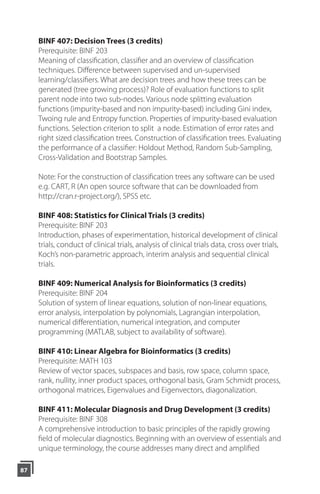




























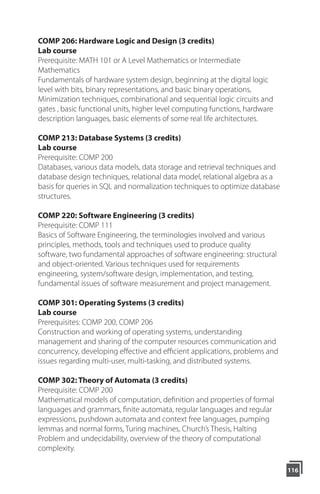






















































![171
GEOG 324: Settlement Patterns and Processes (3 credits)
Human Geography
Human settlement patterns: location, evolution, size, spacing, shapes and
functional systems produced by interactive multivariate processes, forms
and structures. Also includes problems relating to growth, congestion and
evolution of ghettos.
GEOG 325: Political Geography (3 credits)
Human Geography
The course emphasizes the comparative study of global political regions
and related systems. Varied approaches are explored such as power
analysis, genetic analysis, functional analysis, thematic analysis and ethnic
analysis of political units.
GEOG 326: Urban Environmental Issues (3 credits)
Human Geography
The course deals with the dynamics of urban environment degradation
and analysis of rectification mechanisms and policies. The focus is upon the
current environmental issues of urban centers in Pakistan.
GEOG 371: Digital Cartography (3 credits)
Geographical Techniques and Methods
Prerequisite: GEOG 170
Knowledge of computer software applications is preferred.
The course focuses on skill development in computerized map making and
interpretation / analysis.
GEOG 374: Aerial and Satellite Imaging (3 credits)
Geographical Techniques and Methods
Prerequisite: GEOG 170
Knowledge of computer software applications is preferred.
It includes the elements and interpretation processes pertaining to aerial
photographs, remote sensing of earth resources and occupancy patterns;
global positioning system [GPS]; geographic information science & systems
[GIS]; digital image processing [DIP].
GEOG 396: Physical Geography Seminar (2 credits)
Physical Geography
Prerequisite: GEOG-210
It comprises of a departmental seminar investigating a selected field of
Physical Geography. (Topic announced by the chair, prior to registration.)](https://image.slidesharecdn.com/baccacatalog2015-180105080316/85/Bacca-Catalog-2015-173-320.jpg)




